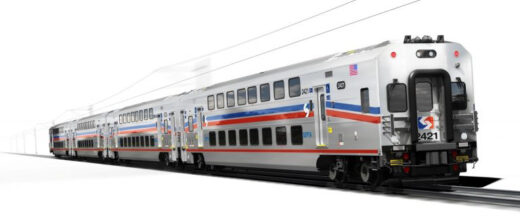SEPTA’s plan to add double-decker cars for the Regional Rail lines has been cancelled.
Late last week, Fox 29 reporter Steve Keeley broke the news that the $185 million contract was off.
A SEPTA spokesperson confirmed the news that the deal with China Railway Rolling Stock Corporation, a government-owned company and the largest maker of train cars, had been cancelled.
“SEPTA has terminated its contract with CRRC MA for cause. The authority is assessing its options for recouping funds that have been spent on the project,” said Andrew Busch, SEPTA’s media relations director.
SEPTA had agreed to buy 45 double-decker cars and already spent $50 million on the project.
The contract was awarded in 2017 and the delivery of double-decker cars was long delayed.
As part of the project, China Railway Rolling Stock Corporation has opened a plant in Massachusetts to make the cars.
Busch said there are no plans for new multi-level coaches, something the transit system doesn’t currently use.
“The next procurement we have planned for Regional Rail is for rail cars to replace the older Silverliners that date back to the mid-1970s. Those would be a modern version of what we have now,” Busch said.

Fox 29 reported that a spokesperson for China Railway Rolling Stock Corporation said in a statement: “CRRC MA is disappointed with SEPTA’s decision to terminate the manufacturer’s existing multi-level passenger coach contract. Having worked closely with SEPTA’s project team beginning with rail car design through initial vehicle production, CRRC MA remains committed to completing the project.”
SEPTA’s Doylestown, Trenton, Warminster, and West Trenton lines run through Bucks County. The entire Regional Rail system uses several hundred passenger cars, with some dating back to the 1970s.










